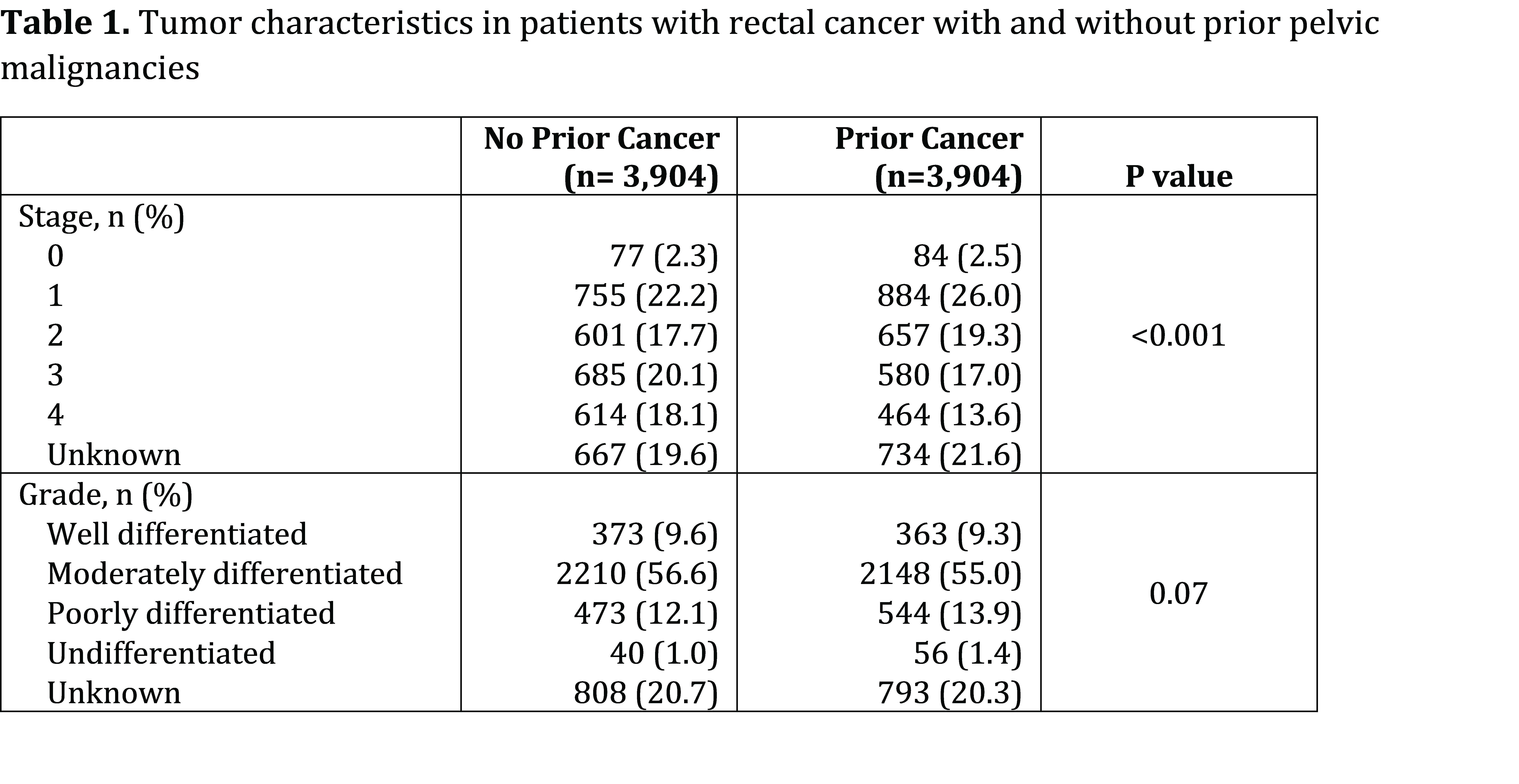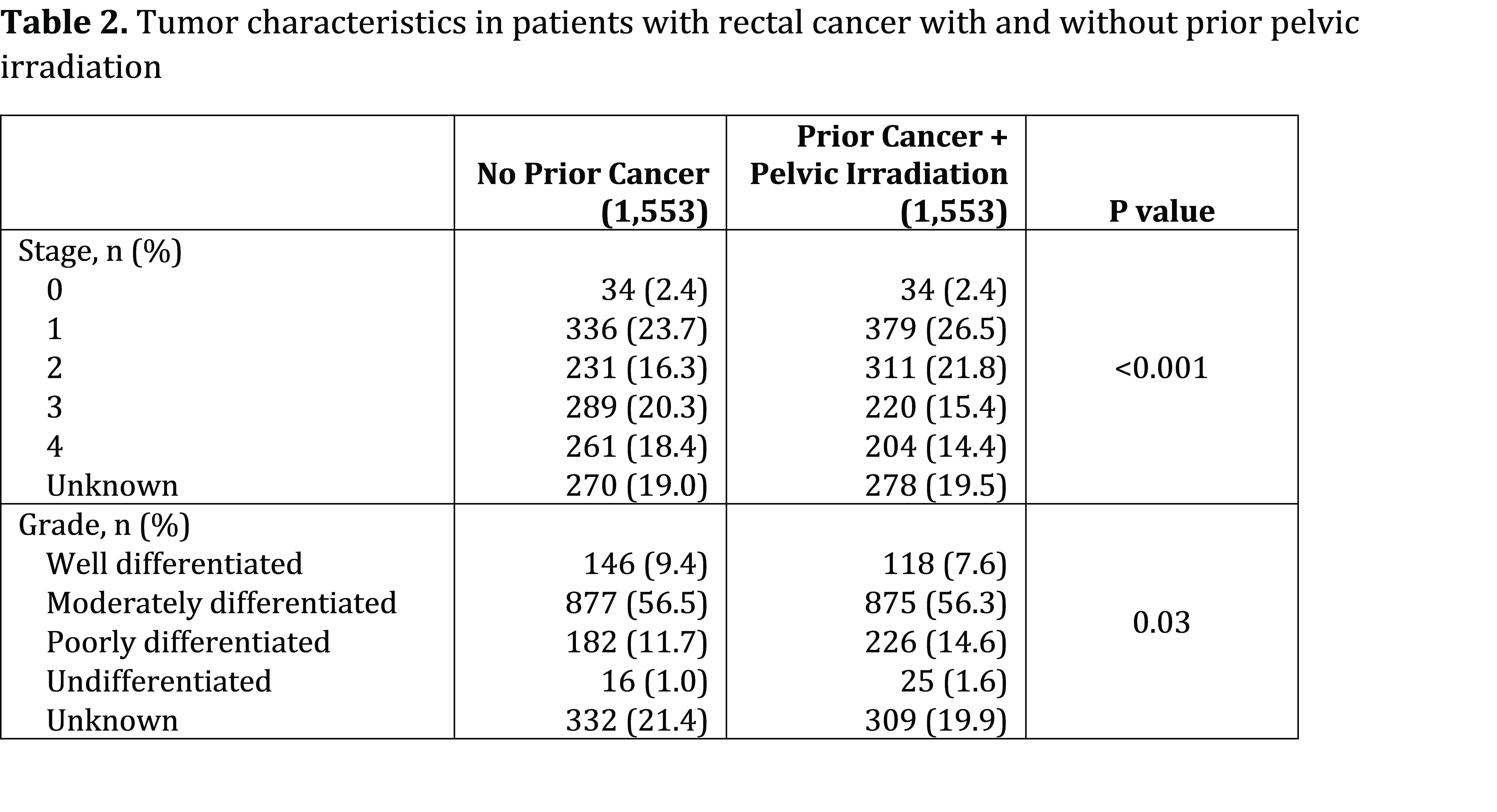|
Back to 2018 Program and Abstracts
RECTAL CANCER IN PATIENTS WITH PRIOR PELVIC MALIGNANCIES
Sergio A. Acuna*, Fahima Dossa, Nancy N. Baxter
Department of Surgery, University of Toronto, Toronto, ON, Canada
Background: Nearly 1 of every 5 patients newly diagnosed with cancer has survived a prior malignancy. Moreover, some cancer treatments including the use of radiation, increase the incidence of second malignancies. As the number of cancer survivors increases, more patients will face treatment challenges related to second cancers. It is unknown whether these tumors have different biologic behavior.
Methods: We conducted a retrospective cohort study using Surveillance, Epidemiology, and End Results (SEER) registry data from 1974 through 2013. We identified patients with rectal cancer from 1998 to 2013 and matched using a propensity score: (1) those patients who had a prior prostate or cervical cancer to patients without prior cancer history; and (2) those patients who had a prior prostate or cervical cancer and prior pelvic irradiation (PPI) to patients without prior cancer history. The propensity scores were generated using sex, age, and year of rectal cancer diagnosis. We compared rectal cancer stage a diagnosis and grade.
Results: 3,904 patients with prior prostate or cervical cancer who developed rectal cancer were matched to 3,904 controls with rectal cancer and no prior cancers. Among those with prior cancers, 1,553 (40.4%) had PPI. The median time from prior cancers to rectal cancer diagnosis was 5 years (IQR 2 - 9). Those with prior cancers were diagnosed with rectal cancer at earlier stages (p<0.001). No differences in grade were observed between groups (Table 1). Next, 1,553 patients with prior prostate or cervical cancer and PPI who developed rectal cancer were matched to 1,553 controls with rectal cancer and no prior cancers. The median time from prior cancers to rectal cancer diagnosis was 6 years (IQR 3 - 11). While those with prior cancers and PPI were diagnosed with rectal cancer at earlier stages (p<0.001), rectal tumors in these patients had higher grades (p=0.03, Table 2).
Conclusion: Patients prior pelvic malignancies and newly diagnosed with rectal cancer presented at earlier stages, probably due to closer medical surveillance for their prior malignancy. While early stage at diagnosis was observed when restricted to those with prior malignancies and PPI, these tumors were of higher grade.


Back to 2018 Program and Abstracts
|


